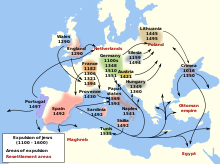
Europa Universalis is a grand strategy video game developed by Paradox Development Studio and published in 2000 by Strategy First.
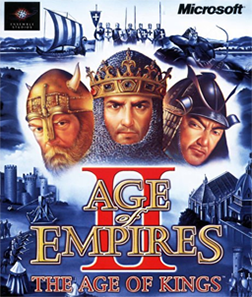
Age of Empires II: The Age of Kings is a real-time strategy video game developed by Ensemble Studios and published by Microsoft. Released in 1999 for Microsoft Windows and Macintosh in 2001, it is the second game in the Age of Empires series. The Age of Kings is set in the Middle Ages and contains thirteen playable civilizations. Players aim to gather resources, which they use to build towns, create armies, and defeat their enemies. There are five historically based campaigns, which conscript the player to specialized and story-backed conditions, as well as three additional single-player game modes; multiplayer is also supported.

Paradox Interactive AB is a video game publisher based in Stockholm, Sweden. The company started out as the video game division of Target Games and then Paradox Entertainment before being spun out into an independent company in 2004. Through a combination of expanding internal studios, founding new studios and purchasing independent developers, the company has grown to comprise nine first-party development studios, including their flagship Paradox Development Studio, and acts as publisher for games from other developers.
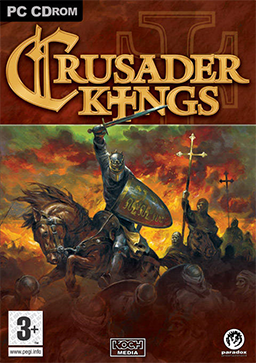
Crusader Kings is a grand strategy game developed by Paradox Development Studio and published by Paradox Interactive in April 2004. An expansion called Deus Vult was released in October 2007. A sequel using the newer Clausewitz Engine, Crusader Kings II, was released in February 2012, and another sequel, Crusader Kings III, was released on September 1, 2020.
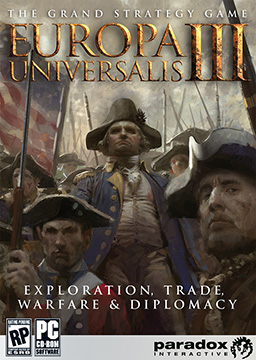
Europa Universalis III is a grand strategy video game developed by Paradox Development Studio and published by Paradox Interactive. The game was released for Microsoft Windows in January 2007, and was later ported to OS X by Virtual Programming in November 2007.
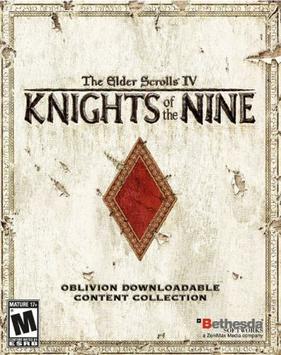
The Elder Scrolls IV: Knights of the Nine is an expansion pack for the role-playing video game The Elder Scrolls IV: Oblivion. Announced on October 17, 2006, for release on November 21, 2006, the expansion was developed by Bethesda Game Studios, and published and released in North America by Bethesda Softworks; in Europe, the game was co-published with Ubisoft. The Microsoft Windows version is available either as a downloadable plug-in from the company website or as part of the retail-released Oblivion Downloadable Content Collection CD—a release that also includes all previously released official downloadable content available for Oblivion. The Xbox 360 version is available via Xbox Live Marketplace, and the PlayStation 3 version of Oblivion includes Knights of the Nine in its packaged release.

Sid Meier's Civilization V is a 4X video game in the Civilization series developed by Firaxis Games. The game was released on Microsoft Windows on September 21, 2010, on OS X on November 23, 2010, and on Linux on June 10, 2014.
Downloadable content (DLC) is additional content created for an already released video game, distributed through the Internet by the game's publisher. It can either be added for no extra cost or it can be a form of video game monetization, enabling the publisher to gain additional revenue from a title after it has been purchased, often using some type of microtransaction system.

Hearts of Iron III is a grand strategy video game developed by Paradox Development Studio and published by Paradox Interactive. The Microsoft Windows version of the game was released on August 7, 2009, while the Mac OS X version was released on December 7, 2009. A grand strategy wargame that focuses on World War II, it is the sequel to 2005's Hearts of Iron II and the third main installment in the Hearts of Iron series.

Victoria II is a grand strategy game developed by the Swedish game company Paradox Development Studio and published by Paradox Interactive. It was announced on August 19, 2009, and released on August 13, 2010. It is a sequel to Victoria: An Empire Under the Sun.

Crusader Kings II is a grand strategy game developed by Paradox Development Studio and published by Paradox Interactive. Set in the Middle Ages, the game was released on February 14, 2012, as a sequel to 2004's Crusader Kings. On October 18, 2019, the video game became free to play. A sequel, Crusader Kings III, was released on September 1, 2020. Crusader Kings II stood out from earlier Paradox games in that it attracted a more widespread audience, contributing to the growth of the company.
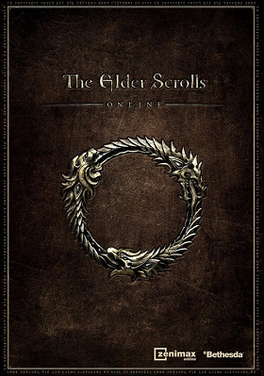
The Elder Scrolls Online, abbreviated ESO, is a massively multiplayer online role-playing game (MMORPG) developed by ZeniMax Online Studios and published by Bethesda Softworks. It was released for Windows and macOS in April 2014. It is a part of the Elder Scrolls series.

Europa Universalis IV is a 2013 grand strategy video game in the Europa Universalis series, developed by Paradox Development Studio and published by Paradox Interactive as a sequel to Europa Universalis III (2007). The game was released on 13 August 2013. It is a strategy game where players can control a nation from the Late Middle Ages through the early modern period (1444–1821), conducting trade, administration, diplomacy, colonization, and warfare.

Cities: Skylines is a 2015 city-building game developed by Colossal Order and published by Paradox Interactive. The game is a single-player open-ended city-building simulation. Players engage in urban planning by controlling zoning, road placement, taxation, public services, and public transportation of an area. They also work to manage various elements of the city, including its budget, health, employment, traffic, and pollution levels. It is also possible to maintain a city in a sandbox mode, which provides more creative freedom for the player.

Crusader Kings II: Sword of Islam is a downloadable content pack developed by Paradox Development Studio and published by Paradox Interactive for the grand strategy wargame Crusader Kings II. It allows the player to play as Muslim characters within the main game for the first time, and introduces a number of events and gameplay elements for those characters, such as decadence and polygamy.

Stellaris is a 4X grand strategy video game developed by Paradox Development Studio and published by Paradox Interactive. In Stellaris, players take control of an interstellar civilization on the galactic stage and are tasked with exploring, colonizing, and managing their region of the galaxy, encountering other civilizations that they can then engage in diplomacy, trade, or warfare with. A large part of the game involves dealing with both scripted and emergent events, through which new empires alter the balance of power, powerful crises threaten the galaxy, or event chains tell the story of forgotten empires. It was released worldwide for Windows, macOS, and Linux on May 9, 2016 and for PlayStation 4 and Xbox One as Stellaris: Console Edition on February 26, 2019.

Red Dead Redemption: Undead Nightmare is a standalone expansion pack to the 2010 video game Red Dead Redemption. It adds a non-canonical zombie horror-themed single-player campaign, two multiplayer modes, and cosmetic additions to the environments and characters of the open world Western action-adventure game. Set in an alternate timeline from the base game's story, the plot follows returning protagonist John Marston, a former outlaw who sets out to find the cause of and possible cure for a zombie plague that has infected his wife and son. Marston liberates towns overrun by the undead and assists non-playable characters with side quests along the way.
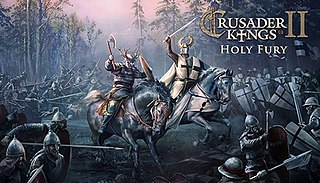
Crusader Kings II: Holy Fury is a DLC for the grand strategy video game Crusader Kings II, developed by the Paradox Development Studio and published by Paradox Interactive. Holy Fury mainly focused around improvements to religion and the ability to create randomly generated worlds.

Crusader Kings II: Sunset Invasion is a DLC for the 2012 grand strategy video game Crusader Kings II, developed by the Paradox Development Studio and published by Paradox Interactive, which adds a fictional Aztec invasion of Europe to the game.

Crusader Kings III is a grand strategy role-playing video game set in the Middle Ages, developed by Paradox Development Studio and published by Paradox Interactive as a sequel to Crusader Kings (2004) and Crusader Kings II (2012). The game was released on PC on 1 September 2020 and on the Xbox Series X/S and PlayStation 5 on 29 March 2022.

